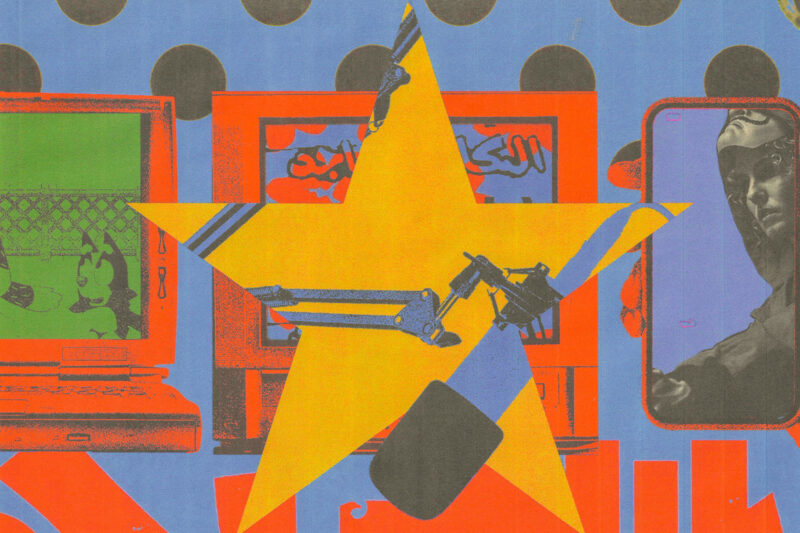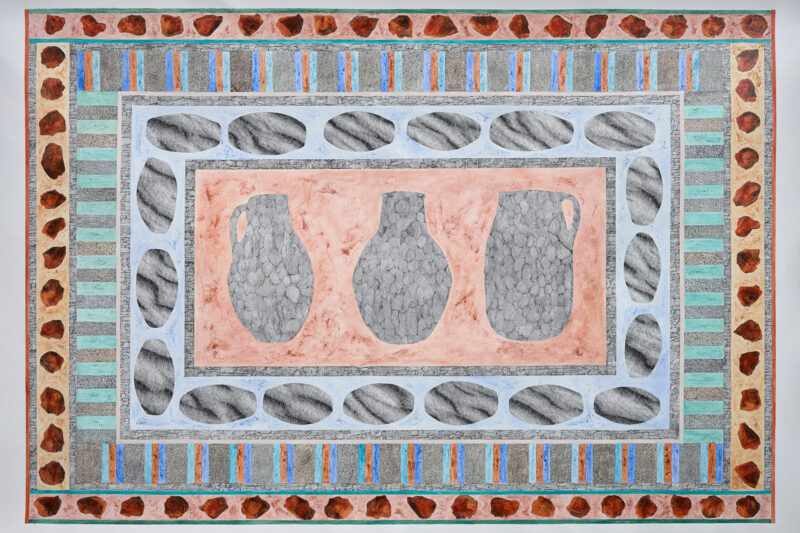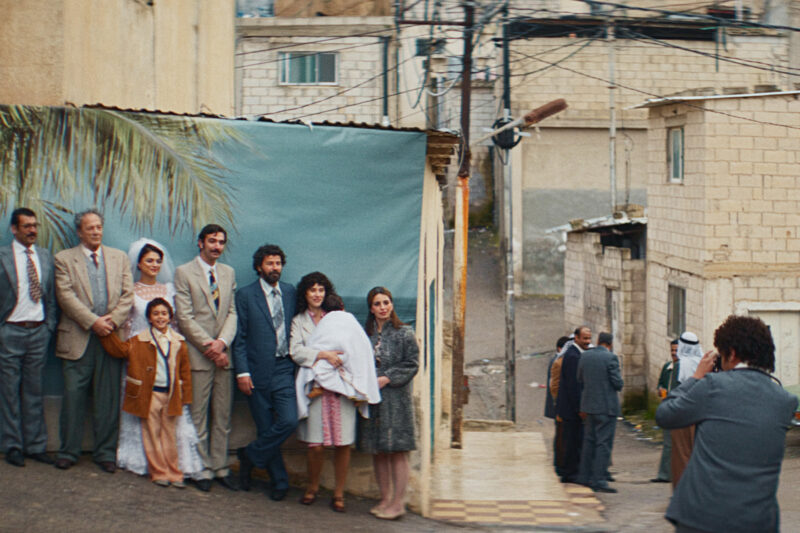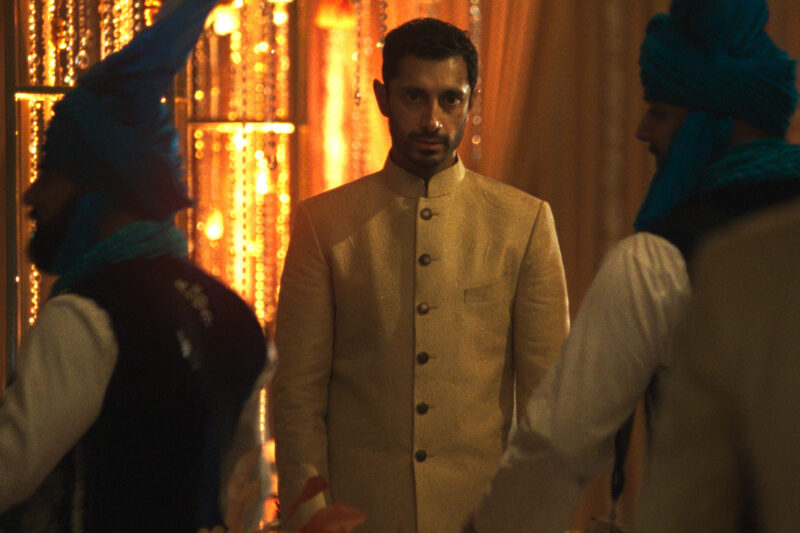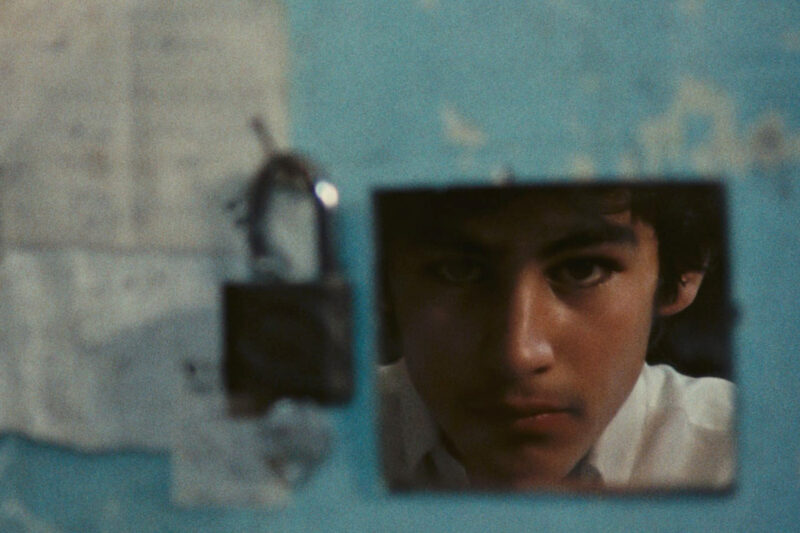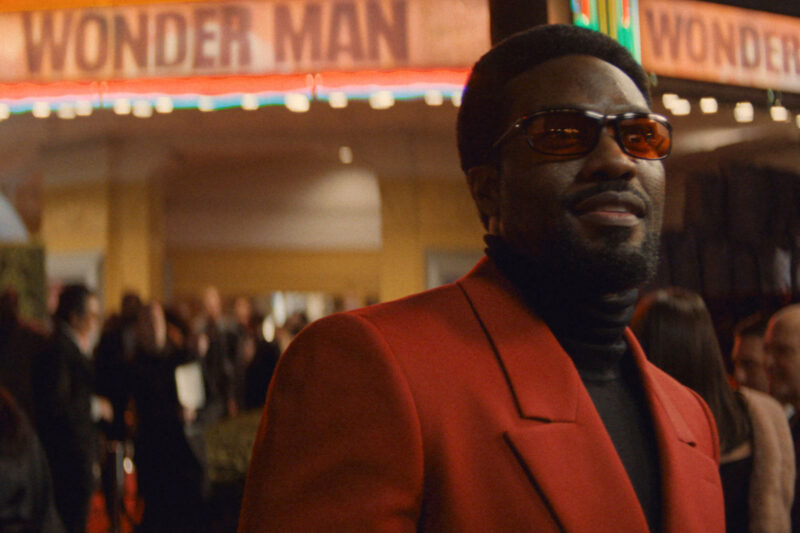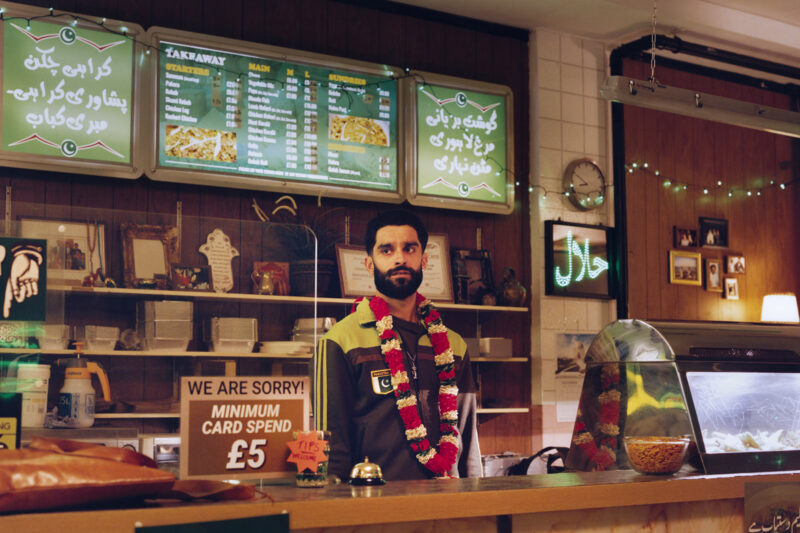Wes Anderson turns his talents to existential crises in the Middle East with The Phoenician Scheme
Underneath gorgeously composed absurdities lies a film reckoning with legacy, morality and what it means to be powerful in a world already bought and sold
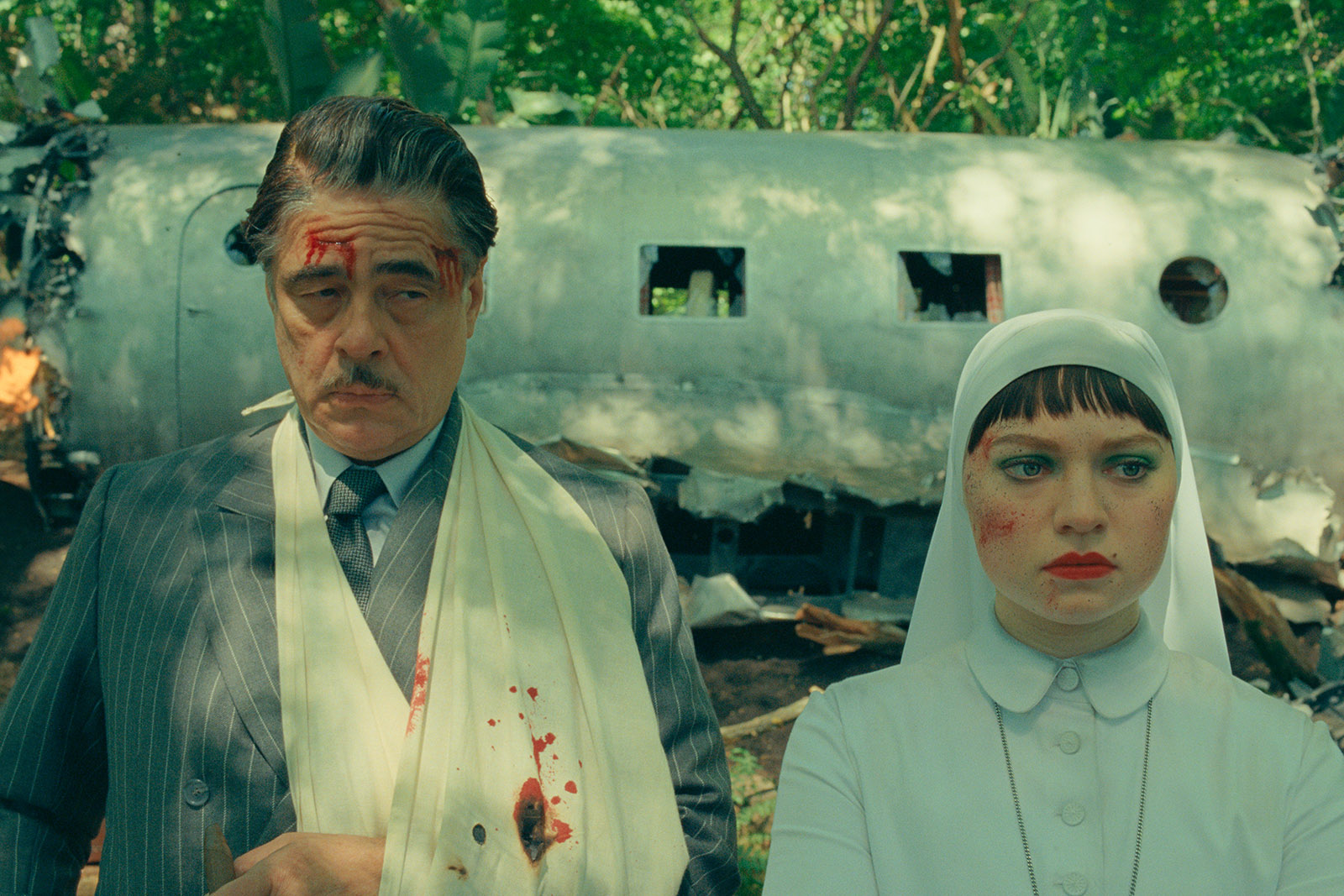
Wes Anderson’s The Phoenician Scheme opens with a plane crash and a pitch-black punchline. An unsuspecting passenger is blown in two, the panicking pilot is fired mid-air, and Zsa-zsa Korda (Benicio del Toro), a puppet-master industrialist, calmly survives his sixth assassination attempt. He walks through a cornfield with a nasty black eye and a bloodied vestigial organ protruding from his torso, informing the press that reports of his death have been greatly exaggerated. It’s classic Anderson chaos: manic, mannered and strangely beautiful.
Dedicated to Anderson’s late father-in-law, the Lebanese construction engineer Fouad Malouf — who was based in Saudi Arabia and married to the novelist Hanan al-Shaykh — the film wears its Phoenician inspirations on its sleeve. While locations are rarely specified beyond latitude and longitude, the term is generally used to describe the region that is modern-day Lebanon and Syria. Despite a central trio of protagonists from Europe, the film never delves into orientalist cliches and instead reflects on the insidious nature of western interference in the region.
The Phoenician Scheme pokes fun at stereotypical depictions of the region with a denouement that takes place in a once-splendid, sprawling hotel, now taken over by new European investors. Korda points out that they have decorated it appallingly with gaudy hieroglyphic walls and an overabundance of garish gold columns.
Characters that are said to be local to the region eschew stereotypes, with Riz Ahmed (in his first Wes Anderson project) stealing the show in his segment as Prince Farouk. He is partnering with Korda and Sacramento-based American investors Leland (Tom Hanks) and Reagan (Bryan Cranston) to build a vast railroad tunnel. He’s witty, handsome, tender and immediately catches the attention of Korda’s daughter Liesl (Mia Threapleton), ultimately coming to triumph and save the deal and the day.
The Phoenician Scheme may be an espionage thriller with a significant death count, but plays a little lighter, like a Mediterranean-hopping romp, with Anderson delighting in every shift of location — closer to The Life Aquatic than The Grand Budapest Hotel. Still, underneath the crimson fezes, wacky inventions and gorgeously composed absurdities lies a film reckoning with legacy, morality and what it means to be powerful in a world already bought and sold.
Korda, a man whose unscrupulous business model involves slavery and famine, is shaken by his latest assassination attempt and concludes that naming an heir might be the best way to secure his legacy. Deciding against any of his nine sons — who live in a dormitory next to Korda’s gargantuan palace — his hopes fall on his estranged daughter Liesl, a pipe-smoking nun whose sincere convictions trouble the cynicism of her father’s empire.
What follows is part spiritual training montage, part series of largely inexplicable business negotiations, as the duo and their insect tutor Bjorn (Michael Cera) embark on an international mission to secure more funding. Though the film is technically set in 1950, there’s a contemporary feel to its perspective on how globalisation is a complex and insidious colonising force, and that even the most powerful governments cannot control its leaders.
Anderson’s ensemble is as stacked as ever: Scarlett Johansson as the razor-sharp cousin Hilda, Jeffrey Wright as a generous American industrialist, Richard Ayoade as a machine gun-brandishing freedom fighter called Sergio. Benedict Cumberbatch, complete with ludicrously large fake eyebrows, plays the truly deranged Uncle Nubar and practically levitates off the screen. But the best surprise is Cera, in his first collaboration with Anderson, whose character slowly evolves into something more complex as both Korda and Liesl’s influences take hold.
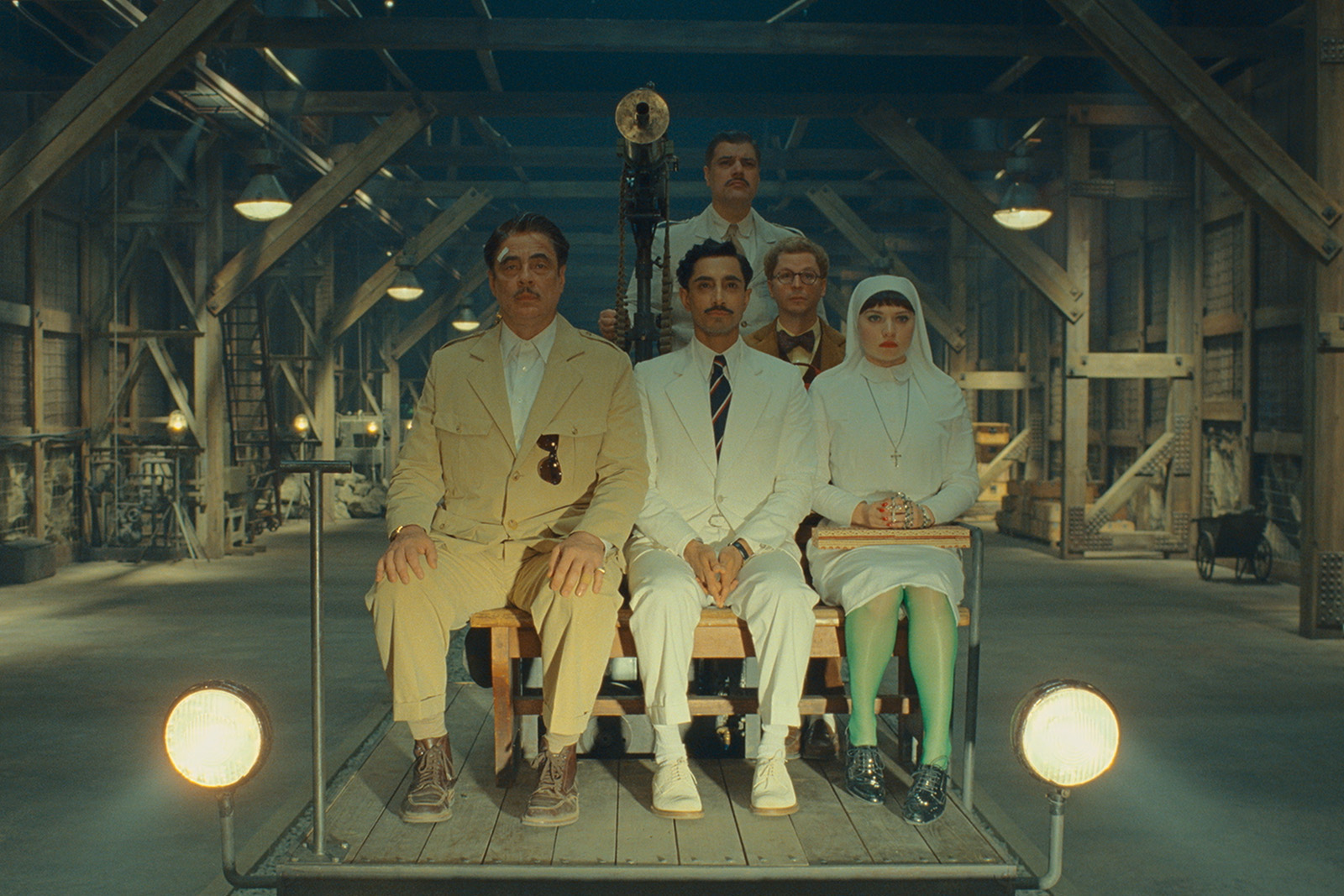
Initially a nerdy, shy and anxious figure largely ignored by the bigwigs making deals, he grows in confidence and unveils new layers — and surprisingly bad ass karate moves. Cera delivers one of the most charming performances in Anderson’s catalogue, proving a perfect vessel for the director’s aesthetic and signature deadpan line delivery. He finds a melancholic rhythm within the dialogue that feels not just natural but revelatory. For an actor who has regularly been delightful on both big and small screens since he was a child, this is his best work to date.
And while The Royal Tenenbaums remains, for me, Anderson’s greatest work, The Phoenician Scheme is a close second. It’s unlikely to convert Anderson’s naysayers — it has all the arch formality in the scripting, a preoccupation with what the characters eat and drink, and a sense of ritual. It’s far more violent than his previous work, and is arguably his funniest, but to call the film slight because it is so fun would be to overlook what Anderson is doing beneath the surface.
This is a film about spiritual ambiguity and capitalist excess, where heaven is presented as a tableau of perfectly lit vignettes and the fate of a man’s soul might depend on a deal struck without slave labour. Korda’s scheming across Phoenicia makes him both monster and victim, but the story is ultimately a hopeful one, suggesting that it’s never too late to become a better version of yourself.
The Phoenician Scheme’s charm lies in its subversion — both in its portrayal of its locales and in what a happy ending for a globetrotting tycoon might truly look like.
In a world where oligarchs accumulate offspring and politicians’ favours like trading cards, Anderson asks whether decency can survive the tides of corruption and capitalism, exploring what it means to even attempt to live a moral life when surrounded by unchecked greed and absurdity. And while he offers no easy answers, it’s clear that art can thrive in spite of it.
The Phoencian Scheme is now in cinemas.
 Newsletter
Newsletter


